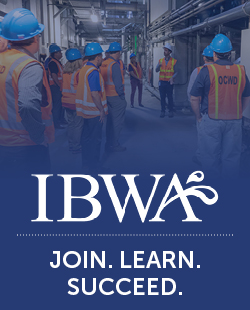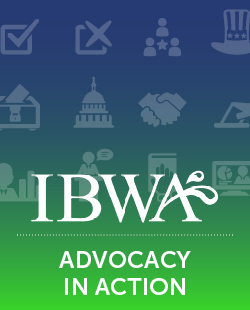Norwalk Virus Talking Points
Norwalk Virus Talking Points
November 2002
Background
The April 2002 issue of Applied and Environmental Microbiology (p 1925-1931), reports on a study, which concluded that Ribonucleic Acid (RNA) with nucleotide sequences specific for “Norwalk-like viruses” (NLV) was detected in some brands of European mineral waters
The International Bottled Water Association (IBWA) contends that the study is scientifically flawed because the researchers did not utilize appropriate methods to test and detect NLV in drinking water and it is clear that validation testing did not reproduce the original findings, which would substantiate the results. Therefore, consumers should not be unduly concerned about the safety of imported bottled mineral waters sold in the United States.
Bottled water, including imported mineral waters, are fully regulated as a packaged food product by the U.S. Food and Drug Administration (FDA), which mandates specific quality standards to help ensure the safety of bottled water.
Talking Points
-
- Molecular biology techniques (RT-PCR), as used in this study do not indicate whether the viral genome that may be present corresponds to an infectious viral particle. RT-PCR methods are extremely vulnerable to laboratory contamination when material is transferred from one step to the next. This was a major flaw identified in the multi-center study conducted by seven European laboratories on this methodology.
- Molecular biology techniques (RT-PCR), as used in this study do not indicate whether the viral genome that may be present corresponds to an infectious viral particle. RT-PCR methods are extremely vulnerable to laboratory contamination when material is transferred from one step to the next. This was a major flaw identified in the multi-center study conducted by seven European laboratories on this methodology.
-
- To our knowledge, no study has shown the presence of infectious enteric viruses (by inoculation on cellular cultures) in bottled mineral water.
- To our knowledge, no study has shown the presence of infectious enteric viruses (by inoculation on cellular cultures) in bottled mineral water.
-
- A Swiss study performed in 2000-2001 on 1,496 samples of bottled water – including spring water, mineral water, and other types of bottled water – concluded with “the absence of the genome Norwalk-like virus (genome groups I and II) in the tested waters” (“Analysis of Norwalk-Like Viruses [NLV] In Bottled Water,” G. Lamothe, T. Putallaz, H. Joosten, J. Marugg, Poster at Congress, February 2002 8th Microbiology Suisse).
- A Swiss study performed in 2000-2001 on 1,496 samples of bottled water – including spring water, mineral water, and other types of bottled water – concluded with “the absence of the genome Norwalk-like virus (genome groups I and II) in the tested waters” (“Analysis of Norwalk-Like Viruses [NLV] In Bottled Water,” G. Lamothe, T. Putallaz, H. Joosten, J. Marugg, Poster at Congress, February 2002 8th Microbiology Suisse).
-
- The conclusion of a multi-center study (2002) carried out by seven European laboratories and referring to the detection of the Norwalk-like virus and Enterovirus genome in mineral water is that: “Even if, from a fundamental point of view, detection of the viral genome by RT-PCR in water is a very good method, it would appear that, in the current state of affairs, the RT-PCR technique is not suited to routine analysis of potentially very weakly contaminated water.”
- The conclusion of a multi-center study (2002) carried out by seven European laboratories and referring to the detection of the Norwalk-like virus and Enterovirus genome in mineral water is that: “Even if, from a fundamental point of view, detection of the viral genome by RT-PCR in water is a very good method, it would appear that, in the current state of affairs, the RT-PCR technique is not suited to routine analysis of potentially very weakly contaminated water.”
-
- Altogether, these results demonstrate that the investigated waters are free from viral contamination, which is in agreement with the absence of any epidemiological link between NLV infections or outbreaks and the consumption of bottled water.
- Altogether, these results demonstrate that the investigated waters are free from viral contamination, which is in agreement with the absence of any epidemiological link between NLV infections or outbreaks and the consumption of bottled water.
-
- Consumers should not be unduly concerned about the safety of bottled mineral waters imported into the United States.
- Consumers should not be unduly concerned about the safety of bottled mineral waters imported into the United States.
-
- Bottled water, including imported mineral waters, is fully regulated as a packaged food product by the U.S. Food and Drug Administration (FDA), which mandates specific quality standards to help ensure the safety of bottled water.
- Bottled water, including imported mineral waters, is fully regulated as a packaged food product by the U.S. Food and Drug Administration (FDA), which mandates specific quality standards to help ensure the safety of bottled water.
-
- FDA recall, misbranding and food adulteration provisions help ensure that substandard or unsafe bottled water products do not reach consumers or can be recalled from the marketplace.
- FDA recall, misbranding and food adulteration provisions help ensure that substandard or unsafe bottled water products do not reach consumers or can be recalled from the marketplace.
-
- Domestic and international members of the International Bottled Water Association adhere to the IBWA Model Code, which mandates stringent quality standards and production practices designed to heighten safety and quality of member bottled water brands.
- Domestic and international members of the International Bottled Water Association adhere to the IBWA Model Code, which mandates stringent quality standards and production practices designed to heighten safety and quality of member bottled water brands.
-
-
The IBWA Model Code requires bottlers to implement a voluntary system called HACCP (Hazard Analysis and Critical Control Point) System, which was adapted by IBWA from FDA and U.S. Department of Agriculture (USDA) for a science-based approach to helping ensure safety in every step of the bottled water process.
-


